Have you ever been on a road trip, ready to hit the open road and explore new destinations, only to realise your trusty Jeep won’t start when hot? Frustration sets in as you try to turn the key, but all you hear is silence. This is a common problem that many Jeeps owners face, and it’s time to uncover why.
Jeeps are known for their ruggedness and ability to handle rough terrain, but they can be a bit finicky when it comes to starting when hot. The issue can be caused by a variety of factors, from an overheating engine to a dead battery. Regardless of the cause, it’s important to address the issue promptly to avoid further damage to your vehicle.
When your Jeep refuses to start when hot, there are several tell-tale signs that can give you a clue as to what’s going on. Some common symptoms include a complete lack of sound when turning the key, the engine cranking but not starting, or the engine turning over but not firing up. Jeep owners have reported feeling a sense of panic as they try to start their vehicles, only to be met with silence.
It’s important to pay attention to these symptoms and take action as soon as possible. Not only will this ensure the longevity of your vehicle, but it will also save you from being stranded on the side of the road in the middle of a road trip. So, if you’re experiencing any of these symptoms, it’s time to get to the bottom of the problem.
Symptoms
When your Jeep won’t start when hot, it’s often a sign of an underlying issue. Here we have compiled some of the most common symptoms you may experience.
Engine cranks but doesn’t start: This symptom is often the result of a weak or dead battery. If your engine cranks but doesn’t start, it could also be a sign of an ignition system issue or clogged fuel injectors.
Engine turns over but doesn’t fire up: If your engine turns over but doesn’t fire up, it could be due to a number of causes, including a weak battery, a failed fuel pump, or a clogged fuel injector.
Engine misfires or stalls: Misfiring or stalling can occur when there’s an issue with the ignition system or fuel system. It could also be a sign of an overheating engine or a dirty air filter.
Engine temperature gauge reads higher than normal: An engine temperature gauge that reads higher than normal is a sign of overheating. Overheating can be caused by a variety of factors, including a clogged radiator, a faulty thermostat, or a failing water pump.
These are the general symptoms you may have to experience. It’s important to address the problem promptly to avoid further damage to your vehicle. Continue reading to get t the bottom of how you can resolve your engine problem.
Most Occurring Reasons Behind Jeep Won’t Start When Hot
There are several factors that can contribute to your Jeep not starting when hot. Let’s take a closer look at some of the most common causes:
Jeep Crankshaft Position Sensor Issue
The Jeep crankshaft position sensor is a crucial component of the engine that helps the engine control module (ECM) monitor the position and speed of the crankshaft. When this sensor fails, it can cause a range of problems for your Jeep, including a no-start condition or stalling.
Engine Overheating
Your Jeep’s engine generates a lot of heat during operation, and if it gets too hot, it can cause serious damage. An overheated engine can lead to warped cylinder heads, damaged head gaskets, or even a blown engine. If you notice your engine temperature gauge climbing, it’s important to address the issue promptly. This can happen if the cooling system is not functioning properly, the thermostat is stuck, or there is a problem with the water pump.
Bad Fuel Pump
The fuel pump located inside the fuel tank is responsible for delivering fuel to the engine; if it fails, your Jeep won’t start. This can be caused by a number of factors, including a clogged fuel filter, a failing fuel pump, or a problem with the fuel pump relay.
Ignition System Issues
Ignition System Issues: The ignition system is responsible for providing the spark needed to start the engine. If there’s an issue with the ignition system, your Jeep won’t start. Common ignition system problems include a faulty ignition coil, a damaged distributor cap, a bad ignition control module, or worn-out spark plugs.
Clogged Fuel Injectors
Fuel injectors are responsible for delivering gasoline to the engine; if they become clogged, your Jeep won’t start. Dirt and debris can accumulate in the fuel injectors, causing them to become clogged and reducing fuel pressure to the engine.
Dirty Air Filter
The air filter is responsible for cleaning the air that enters the engine. If the air filter becomes clogged, it can restrict airflow to the engine, causing a decrease in performance and even stalling.
Weak or Dead Battery
The battery provides the electrical power needed to start the engine. If the battery is weak or dead, your Jeep won’t start. A dead battery can be caused by a variety of factors, such as a weak alternator, a loose battery cable, or simply age.
Faulty throttle position sensor
A faulty throttle position sensor (TPS) can cause a no-start condition in a Jeep or any other car. The TPS is a crucial component in the engine management system and provides input to the engine control module (ECM) regarding the position of the throttle. This information is used to control various engine functions such as fuel injection, ignition timing, and emissions control. If the TPS is not functioning properly, it can cause incorrect signals to be sent to the ECM, resulting in problems starting the engine.
Diagnosing the Problem
In order to diagnose the problem of your Jeep not starting when hot, there are a few steps you can take:
Checking the Battery
The first step in diagnosing your Jeep’s starting problem is to check the battery. Use a multimeter to check the battery voltage, and look for any loose or corroded connections. If the battery power is low, you may need to buy a new battery.
Inspecting the Ignition System
If the battery is fine, the next step is to inspect the ignition system. This includes checking the spark plugs, spark plug wires, and ignition control module. If any of these components are damaged or worn out, they can cause the engine to not start.
Testing the Fuel System
If the ignition system is fine, the next step is to test the fuel system. This includes checking the fuel pump, fuel filter, and fuel injectors. A clogged fuel filter or dirty fuel injectors can restrict fuel flow to the engine, causing it not to start.
Jeep Crankshaft Position Sensor Issue Diagnosis
Diagnosis of the problem can usually be done by a mechanic through a series of tests, including checking for trouble codes in the vehicle’s computer system, checking the sensor’s wiring and connections, and using a multimeter to check the sensor’s output.
Diagnosing the throttle sensor
To diagnose a faulty throttle position sensor (TPS) in a Jeep, a mechanic will first check for codes stored in the engine control module (ECM). They may also use a scan tool to monitor the TPS voltage and compare it to the readings from the accelerator pedal position sensor. If the TPS readings are inconsistent or outside of the normal range, it is an indication of a faulty TPS. The mechanic may also perform a visual inspection of the TPS and its connections to check for any signs of damage or corrosion.
Verifying the Engine Temperature
Finally, you should verify the engine temperature to make sure it’s not overheating. If the engine is running hot, you’ll need to address the issue with the cooling system.
Of these diagnostics, checking the battery is usually the most effective solution, as a weak battery is the most common cause of a Jeep not starting when hot. However, it’s always best to perform all these steps to thoroughly diagnose the issue and determine the most effective solution.
Solutions
When it comes to fixing a Jeep that won’t start when hot, there are several solutions you can try. Some require basic mechanical skills but let’s take a closer look at each of them:
Fixing the Overheating Engine
If the engine is overheating, it’s important to address the problem promptly. You can start by checking the coolant levels, making sure the thermostat is functioning properly, and ensuring the water pump is working correctly. If you’re not comfortable working on your engine, it’s best to take it to a mechanic.
Cleaning or Replacing Fuel Injectors
If the fuel injectors are clogged, they can cause a number of problems, including a hard-to-start engine. You can try cleaning the injectors, but if that doesn’t solve the problem, you may need to replace them.
Repairing or Replacing the Ignition System
If the ignition system is faulty, it can cause your Jeep to not start when hot. You can start by checking the spark plugs and wires, as well as the ignition control module and switch. If any of these components are faulty, they’ll need to be repaired or replaced.
Replacing the Battery
If the battery is weak or dead, it won’t be able to provide the necessary power to start the engine. A simple solution is to replace it, and it’s often the most effective way to resolve the power problem.
Replacing the crankshaft position sensor
The solution to a failed crank position sensor is to replace the sensor. Replacing the sensor is a straightforward job that can be performed with basic hand tools. You’ll need to locate the sensor, which is usually located near the crankshaft and remove it from the engine. Once the faulty crankshaft position sensor is removed, you can install the new sensor in its place and re-connect the wiring harness.
Replacing the throttle sensor
The solution to a faulty TPS will typically involve replacing the sensor with a new one. You will first disconnect the battery and then remove the old TPS, which is usually located on the throttle body. The new TPS will then be installed and connected to the wiring harness. Finally, test the TPS voltage and functionality to ensure that it is working properly and communicating with the ECM.
In my opinion, the most effective solution is replacing the battery. A weak or dead battery is a common cause of Jeep not starting when hot, and it’s often the simplest and quickest way to resolve the problem. If that doesn’t solve the issue, it’s best to consult with a mechanic to diagnose the underlying problem and recommend the best course of action.
Prevention
Prevention is better than cure. You will agree with me that preventing a Jeep from not starting when hot requires regular maintenance and a little bit of awareness. Here are some effective ways to prevent this issue:
Regular maintenance: Regular maintenance is key to ensuring the health of your Jeep’s engine and systems. This includes oil changes, air filter replacement, and radiator flushes. Regular maintenance will help keep your engine running smoothly and avoid issues like overheating or clogged fuel injectors.
Monitoring engine temperature: Keeping an eye on your engine temperature gauge can help you detect and prevent overheating issues. If you notice the temperature gauge reading is higher than normal, it’s important to address the issue promptly to avoid further damage.
Replacing faulty parts in a timely manner: If you notice any warning signs, like unusual engine behaviour or a warning light on your dashboard, it’s important to address the issue promptly. Replacing faulty parts, such as a failing water pump, fuel pump or faulty thermostat, can help prevent the issue of your Jeep not starting when hot.
Keeping the battery in good condition: A weak or dead battery can contribute to the issue of your Jeep not starting when hot. Keeping your battery in good condition, through regular cleaning and monitoring, can help ensure that your Jeep starts when you need it to.
By following these preventions and staying aware of the symptoms of a Jeep not starting when hot, you can avoid this issue and keep your vehicle running smoothly.
Final Thoughts
Addressing the issue of a Jeep not starting when hot is important to ensure the health and longevity of your vehicle. Ignoring the issue can lead to further damage and costly repairs. By being aware of the symptoms and following preventions, you can avoid this issue and keep your Jeep running smoothly.
If you’re facing the issue of your car not starting, don’t ignore it. Take action promptly to address the issue and ensure the health of your vehicle. By following the solutions and preventions outlined in this article, you can avoid this issue and keep your Jeep running smoothly. Don’t hesitate to seek the advice of a trusted mechanic if you’re unsure about how to address the issue.

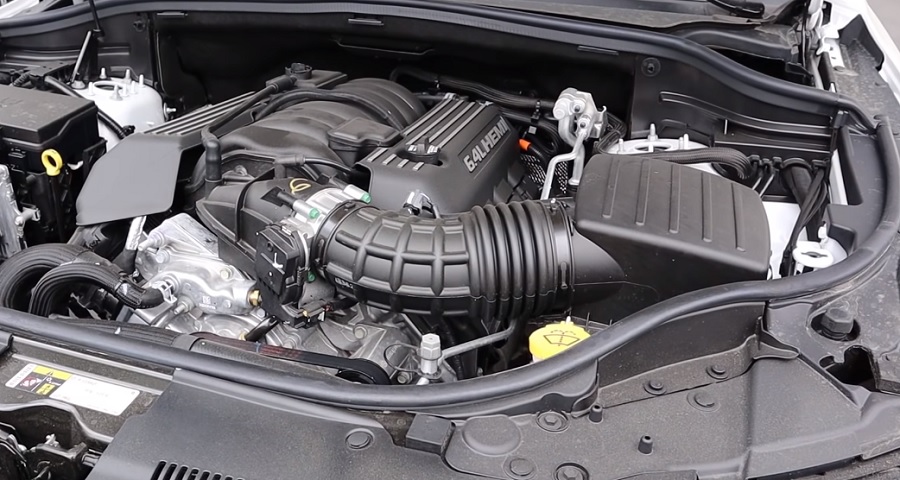
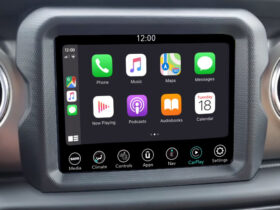
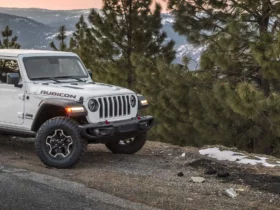
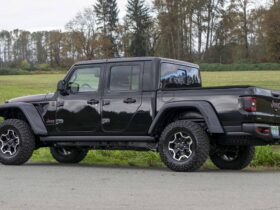
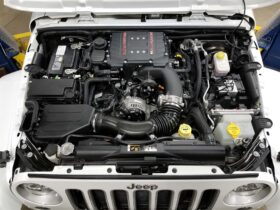
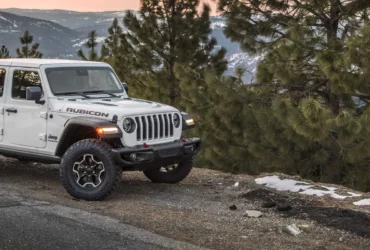
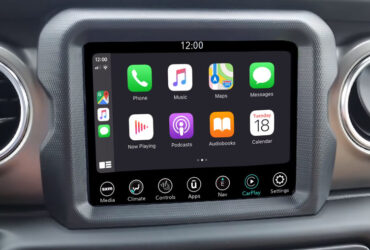
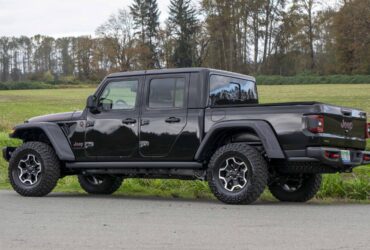
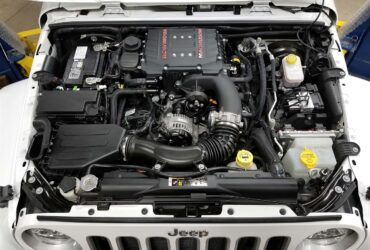
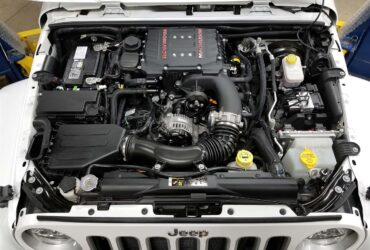
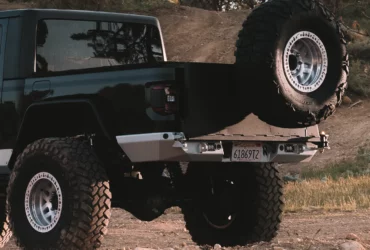
Leave a Reply